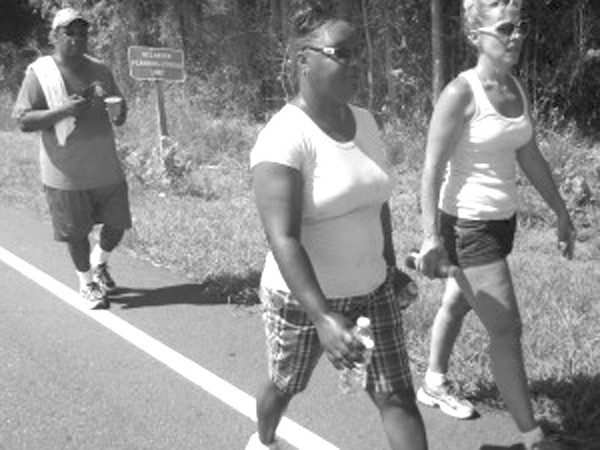
PHOTO/THEWALKNCTODC.COM
By Rita Valenti, RN and health care advocates in the Washington DC area
ATLANTA, GA — Rural hospitals everywhere are fighting for their existence. Fifty have closed since 2010, affecting the jobs, health, and lives of over 800,000 people. When the critical access hospital in Belhaven, North Carolina, closed last summer, the town’s Republican mayor knew his town’s fate was connected to a broader fight. With support from the state’s Moral Mondays campaign, a 2014 walk to Washington, DC was organized to address the hospital’s future.
Now 283 more rural hospitals are likely to close. A second walk from Belhaven to Washington, June 1 to June 15, will petition Congress to keep hospitals open and help spark national attention and debate. (See www.thewalknctodc.com and http://www.shepscenter.unc.edu/programs-projects/rural-health/rural-hospital-closures/ )
Planned closures will mean up to 85,000 jobs lost in health care and communities. Rural areas will lose $10.6 billion in economic activity to support people’s lives. Children, family members, and neighbors die when emergency rooms close. Just ten needless deaths per closed hospital each year will kill as many Americans as died in the 9/11 attack . . . every year.
All this reflects an upheaval in the financing and delivery system of healthcare. The Affordable Care Act (ACA) and recent changes in Medicare reimbursement encouraged the growth of Accountable Care Organizations —large corporate integrated health systems. Profiting from economies of scale and heavily dependent on technologies, their business model doesn’t work in smaller rural settings. Most rural hospital closures are in states where governors have refused to expand Medicaid and are concentrated in the historic Black Belt of the South. This area’s rich black soil fed the plantations and the brutal slave system that defined and expanded American capitalism. The closings will intensify the extreme poverty and poor health of the area.
Rural health suffered a blow in the early 1980’s when fixed Medicare reimbursements were introduced. Today Electronic Health Record (EHR) technologies are needed to insure billing, payments and complex data collection under Medicare’s new reimbursement policy. Almost no rural hospitals could afford to implement EHRs four years ago. Medicare’s “outcome based reimbursement” ignores the devastating effects of poverty like lack of transportation, food deserts and lack of money for medications. So closures are accelerating, paving the way for the market to serve only those who are most profitable.
Each rural hospital closing is a story of people and communities dying and under attack. Medicare and Medicaid are a half-century old this July, won on the wave of the Civil Rights Movement. Today partial solutions are going to be temporary at best and, at worse, will only make healthcare easier to privatize and harder to afford. Only when healthcare for those in the poorest communities is secure will we be able to win healthcare for all.
The “NC to DC Walk” is an example of working people, Black and white, working across party lines to make health care for all a national moral issue. Its vision of saving and improving rural healthcare points toward a federal guarantee for a publicly-owned healthcare delivery system that is accountable to those it serves.
